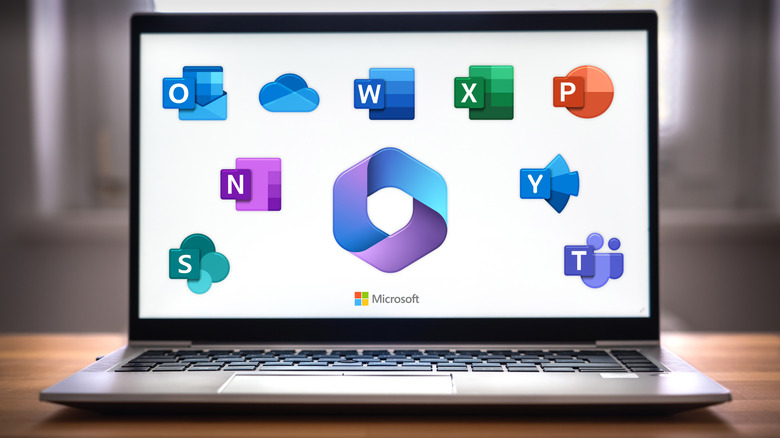Some European Countries Are Ditching Microsoft Software For Good (And Here's Why That Matters)
A few European countries are quietly changing how they do business: moving away from Microsoft software in favor of open-source alternatives. While there are plenty of individuals who've made the switch from Windows to Mac or Linux, ditching Microsoft software along the way, the tech giant has been a mainstay in many offices around the world for the better part of three decades. That's why it's so surprising some European countries have decided to upend the status quo and walk away from the decades-old standard. For many, it's as much a political and strategic decision as it is a technical one.
Denmark is the most prominent example of the changes that are underway, with its Ministry of Digital Affairs set to phase out Windows and Office 365 by November 2025, replacing them with Linux and LibreOffice. The Ministry's decision builds on earlier efforts by the country's two largest cities, Copenhagen and Aarhus, which had already announced plans to limit their reliance on Microsoft software. If you're wondering what's behind the sudden shift, it's a desire for digital sovereignty. Denmark and the other European countries making similar moves want to reduce their dependence on foreign tech firms.
These are the European governments ditching Microsoft
Denmark isn't alone in its push to move away from Microsoft tools in the public sector. Shortly after Denmark revealed its decision to transition away from Microsoft products, Germany's northern state of Schleswig‑Holstein said it would stop using Microsoft Teams, Word, Excel, Outlook, and eventually Windows in government offices. The transition to a Microsoft-free workplace is expected to affect around 30,000 public-sector employees, including civil servants, police, and judges, who will switch to Linux, LibreOffice, Open‑Xchange, Nextcloud, and Thunderbird. Schleswig‑Holstein's Digitalization Minister Dirk Schroeder didn't mince words when he told AFP, "We're done with Teams!" He cited digital sovereignty and a desire to "take back control" of how the state's data is stored and managed.
The debate over Microsoft 365 vs. Office 2024 might matter to individual users, but for many European governments, the bigger question is whether to use Microsoft software at all. France was one of the first countries to act on that question. In November 2022, the Ministry of National Education advised against the use of free versions of Microsoft 365 and Google Workspace in public schools. Officials cited concerns over compliance with the EU's strict data privacy law, the General Data Protection Regulation (GDPR), and the risks posed by the U.S. Cloud Act, which requires U.S.-based companies to turn over data even if it's stored abroad. Instead of enforcing a hard ban, officials urged schools to use on-premise or EU-hosted solutions that comply with European data-protection requirements.
While some regions, like Spain's Valencia, made large-scale moves to LibreOffice as early as 2012, primarily to cut costs and avoid vendor lock-in, others have framed the shift more strategically. In 2015, Italy's Ministry of Defence adopted LibreOffice and the Open Document Format (ODF) on over 100,000 systems as part of a long-term plan to ensure autonomy over public-sector data and document standards.
Why this shift away from Microsoft matters
At first glance, these moves by European countries may seem like nothing more than a symbolic gesture or bureaucratic reshuffle. In reality, they reflect a deeper shift toward asserting control over digital infrastructure and reducing reliance on foreign tech giants. Many of the countries that have chosen to transition away from Microsoft software have been explicit: this transition is a powerful move towards establishing digital sovereignty. For many European countries, digital sovereignty means keeping critical infrastructure and data out of the hands of foreign tech firms.
Just like you should change some Google settings immediately if you're worried about privacy, European governments have decided to perform a reset on their relationship with big tech, starting with how they manage software, data, and control. One of the biggest motivators is geopolitical independence. As Europe becomes concerned about its overexposure to U.S. tech companies, like Microsoft, Google, and Amazon, some countries have begun taking concrete steps toward limiting their reliance on U.S. providers. A side benefit is that by replacing Microsoft, European countries stand to save money through the elimination of recurring license fees.
According to some estimates, Germany's Schleswig-Holstein state could see several million euros in savings over the next few years. While it's still early, if more countries follow suit, it could disrupt the current global tech order and force companies like Microsoft to rethink how they work with public-sector clients outside the U.S.


